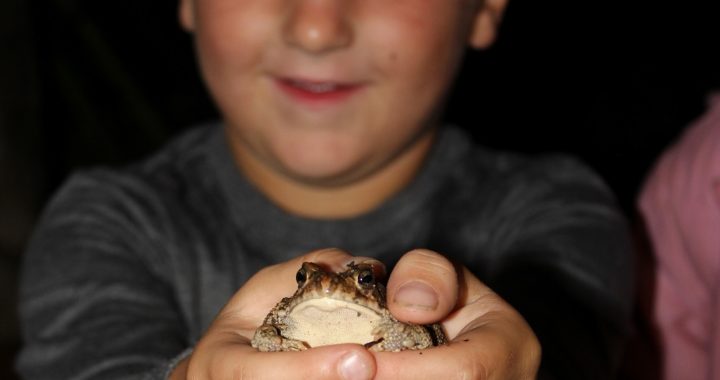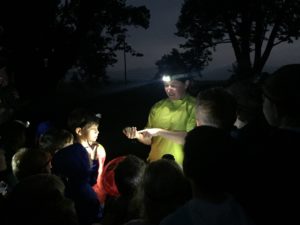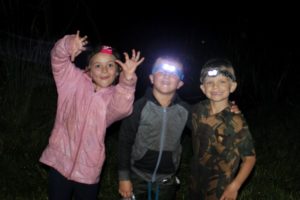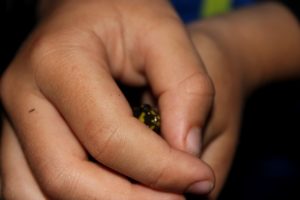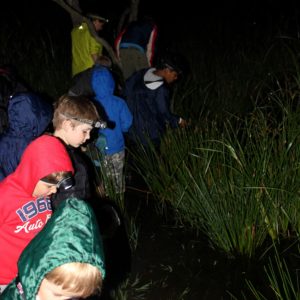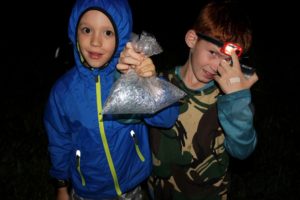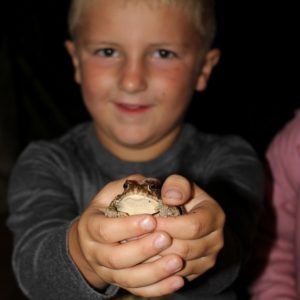KRANES Go Frogging
Armed with headlamps, bare feet and gumboots, an excited group of froggers set off into the wetlands at the Karkloof Conservation Centre to search for some amphibian friends. Along the way, children learnt some fascinating facts about frogs from our favourite ‘frogspert’, Charlene Russell.
Kezia Crow, who is only 7 years old, wanted to know if humans can get diseases from frogs? Frogs are harmless to humans, as they do not bite or sting and they are not carriers of human or animal diseases. Humans, however, inflict harm on frogs through pollution such as harmful chemicals that is easily absorbed through the frogs skin causing them to die. So if you see a frog in the area, you know your environment is healthy.
That is why it is very important that you don’t pick up any frogs if you have used creams or mosquito sprays without rinsing your hands in water first, otherwise you will hurt or even kill the frog.
Sploshing through the wetlands in the dark was an awesome experience for the kids who thought they were modern adventurers searching for that elusive treasure.
We found Painted Reed Frogs, Yellow-striped Reed Frogs, a Common River Frog, a Striped Grass Frog that got away and lots of Guttural Toads of all sizes. We were all puzzled about the difference between frogs and toads, and although they have various differences, we learnt that toads are a type of frog.
Kids released their frogs in the same spot that they found them and not all the moms were impressed with what was presented to them at the end when the kids became ‘frogsperts’ themselves.
Become a frog hero – here’s how:
- Don’t use harmful chemicals and pesticides at home and in the garden.
- Build a frog pond at home or at your school!
- Conserve resources – especially water!
- Reduce, Re-use, Recycle! Don’t be a litter bug!
- Give toads a brake! Slow down on wet nights to avoid squashing frogs on roads.
- Do NOT eat frogs’ legs.
- Learn more about frogs.
- Teach your friends and family not to be scared of frogs and tell them why frogs are so important.
- Don’t use frogs to scare people.
- If a frog is in your home, please don’t kill it! Simply catch it and move it outside.
- Celebrate Leap Day For Frogs on the 28 February.

